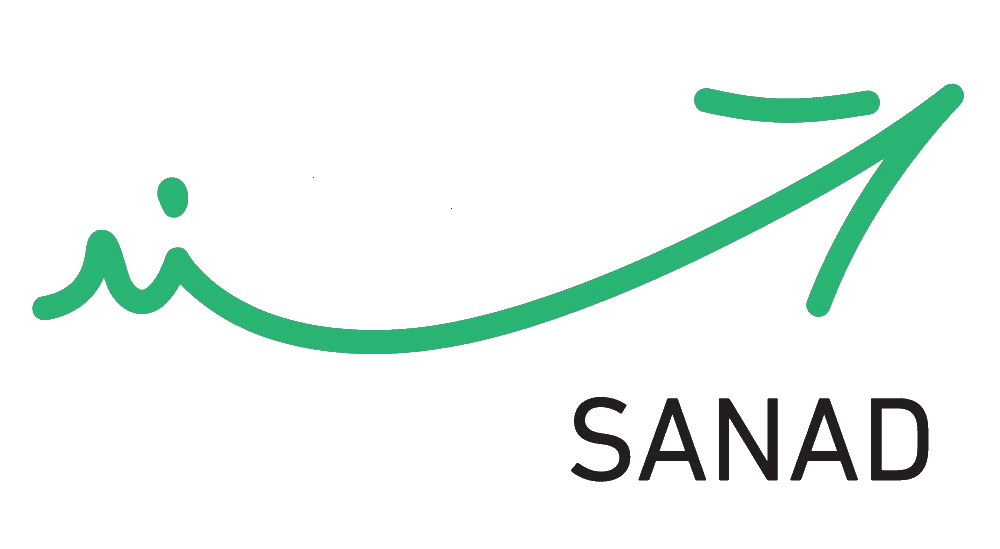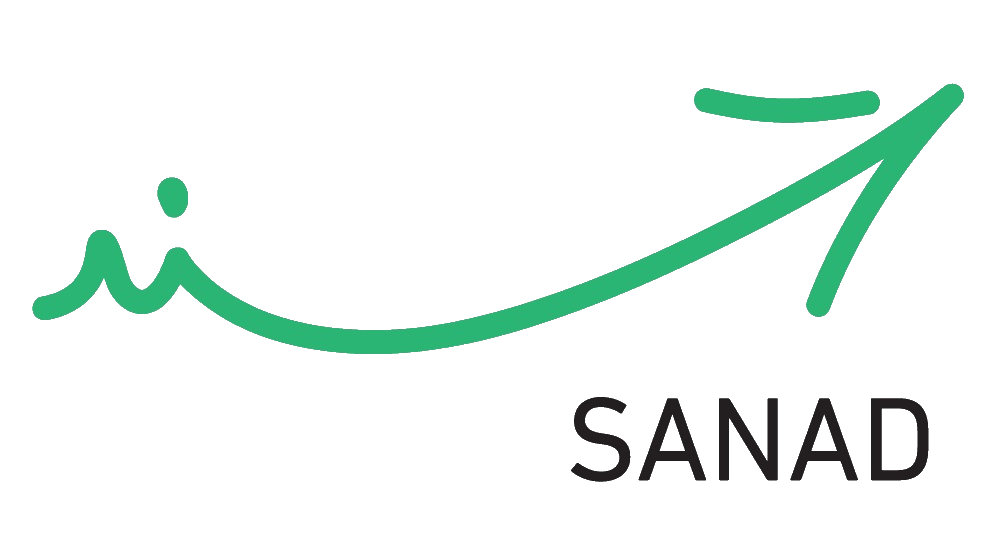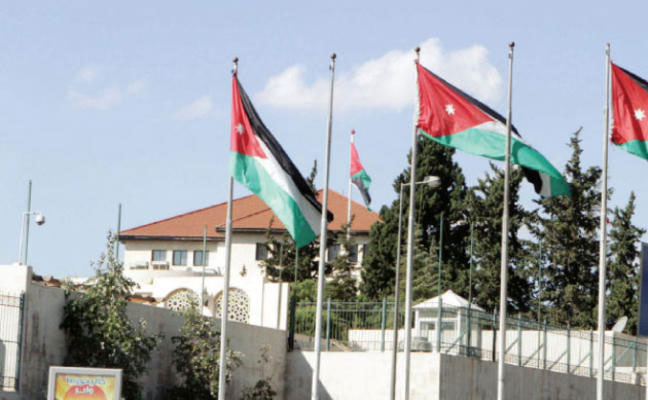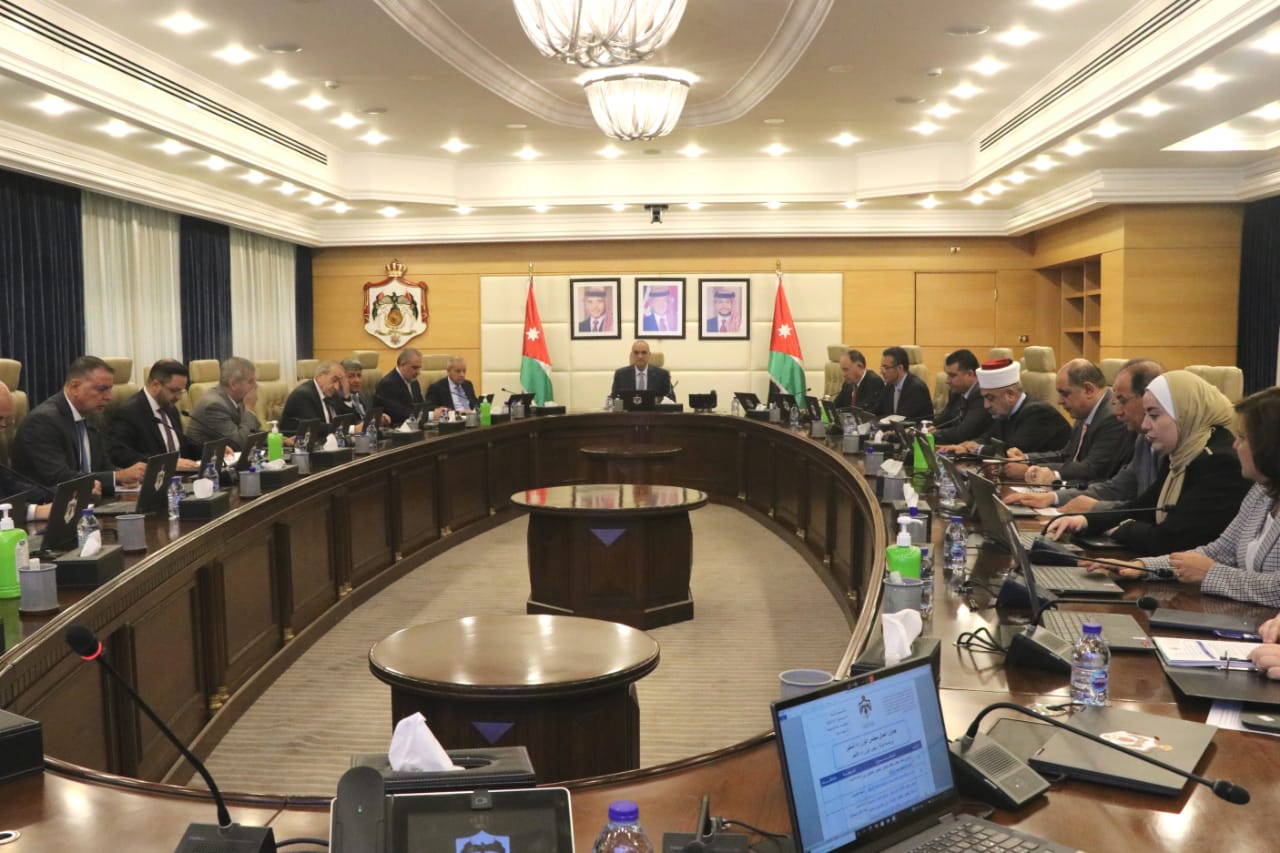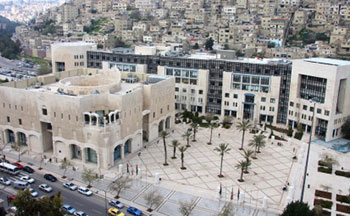 Cities and Villages Development Bank
Cities and Villages Development Bank
Cities and Villages Development Bank
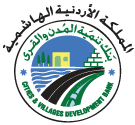
General Information
General Information
In 1951, a specialized financial institution to finance municipalities' projects was founded under the name of Economic Development Fund, with a modest capital of JOD. 68,000.00.
In 1955, the fund was moved to the Development Board under the name of Municipalities Loans Fund with a capital of JOD. 1.7 million and was integrated with the Rural Reform Section.
In 1966, the Fund became an independent institution named Municipalities Loans Fund with a capital of JOD. 2.1 million.
On January 16, 1979 Cities and Villages Development Bank was set up with a capital of JOD. 5.8 million.
In 1982, the Bank's capital was raised to JOD. 12 million.
In 1996, the Bank's capital was raised to JOD. 25 million.
In 2002, the Bank's capital was raised to JOD. 50 million.
In 2016, the Bank's capital was raised to JOD. 100 million.
Cities and Villages Development Bank is an official public body that has an independent corporate personality, administratively and financially. It was established in 1979 and declared and paid up capital amounts to JOD. 50 million, while the reserves amounts to JOD. 31.3 million as illustrated in the following table:
|
Contributor |
Declared Capital |
Percentage |
|
Government of the Hashemite Kingdom of Jordan |
JOD. 69 million |
69% |
|
Central Bank of Jordan |
JOD. 1 million |
1% |
|
Local Councils |
JOD. 15 million |
30% |
|
Total: |
JOD. 100 million |
100% |
The Bank provides long term financing necessary to perform service and productive projects for the local councils in the Kingdom. The Bank has provided the required financing for development and service projects throughout all the cities and villages in the Kingdom. Furthermore, the Bank manages and guarantees the loan agreements made between the councils with any other organizations that aim at providing local communities with basic services. The Bank also renders needed assistance to the local councils to set the priority of their productive projects in the light of their economic feasibility in addition to furnishing expertise and technical and training services to enhance the employees' capabilities in such councils, further to managing local councils' funds collected by the government.
Board of Directors of the Bank:
The Bank is managed by a board of directors comprising nine members as follows:
- Minister of Local Administration, President.
- General Director of the Bank, Vice President.
- Ministry of Finance representative, member.
- Ministry of Public Works representative, member.
- Ministry of Local Administration representative, member.
- Ministry of Planning representative, member.
- Central Bank of Jordan representative, member.
- Two representatives of the local councils, members.
The Bank's Executive Branch will presided by the General Director as appointed by a decision issued by the Cabinet upon a recommendation by the Board of Directors. He/she will perform the Board's decisions, apply the Bank's general policy, supervise the Administrative Branch, and shall be delegated to exercise the powers conferred upon him/her in pursuance of the regulations of the law or delegated to him/her by the Board.
Bank's Objectives and Responsibilities:
- Support the local councils' projects to ensure the services that aim at providing the public basic services and participate in upgrading as such by boosting its local and external financial resources and furnishing the necessary credit facilities to carry out such projects.
- Manage and guarantee the loan agreements made by the local councils and undertake any banking functions, dealings, or activities required to perform the responsibilities vested in the Bank under this law or any other legislation or any international agreement where the government of Jordan is a party therein and its execution would require the participation of the Bank.
- Assist the local councils in setting the priorities of productive projects in the light of their economic feasibility and contribute in the capital of such projects.
- Assist in securing technical expertise and services, including the training of technicians needed by the local councils.
- Offer facilities to any local council or institution whose goals include the provision of basic services within the boundaries of local councils.
- Finance projects for local councils that are not based on gainful goals in compliance with codes and conditions determined under regulations issued to that effect.
Banking Activities:
- The Bank shall collect government tax and fees revenues (government subsidy proceeds, vehicles registration, penalties, and fines). As such shall be allocated to municipalities as per the principles prescribed by the Cabinet.
- Open bank commercial accounts to receive municipalities' returns, whether from their own revenues or from their other accounts at the Bank. Direct disbursement shall be made to municipalities' clients such as contractors and suppliers from such accounts.
- Open accounts for the municipalities' secretariats in order to issue the Social Security deposits, healthcare, and employees’ deposits.
Issue of Loans Activities:
The Bank has provided local councils with short, medium, and long term loans to finance service and productive projects based on interest rates concession. The amount of loans since the foundation of the Bank and up to date reached JOD. 354,1 million and the following table shows the allocation of loans and top projects financed by the Bank:
- (Service) projects comprising streets, sidewalks, curbstones, gardens, gymnasiums, public recreation centers, sanitary drainage, health centers, and social centers.
- (Productive) projects comprising commercial markets and complexes, offices, industrial and professional areas, car and trucks parking lots, libraries, etc.
|
Project Type |
Interest Rate |
Payment Period including the Grace period/Year |
Grace Period/Year |
|
Service Projects |
5% |
12 |
2 |
|
Sidewalks and Curbstones |
6% |
6 |
1 |
|
Productive Projects |
6% |
12 |
2 |
Islamic Finance According to the Sharia Contract
- The Bank started as of the beginning of 2010 financing income generating joint investment projects in association with municipalities. 7 projects for a total amount of JOD. 5 million were studied. 4 projects were approved in the municipalities of Rusaifah 2 nos., Ma'an, and Central Shunah for a total amount of JOD. 1.5 million.
Training Activity:
Article 5 of the Bank By-Law provides that the Bank shall offer the necessary assistance to the local councils to secure technical expertise and skills, including the training of technicians needed by the councils. The Bank, to that effect, founded training centers with the required technical staff to facilitate the training process for councils' employees. Training activity commenced after the municipalities integration that took place at the beginning of 2002 and two training centers were initially constructed in central and northern regions. The Bank, then, continued the effort in building the remaining centers in other locations throughout the Kingdom as follows:
- Training center located in the Administration Building/Bank's Head Office.
- North Training Center in Irbid in collaboration with the Municipality of Irbid.
- Jarash Training Center.
- Tafeelah Training Center.
- Mafraq Training Center.
- There are other centers in some governorates in the Kingdom.
Training courses had diversity to meet the needs of municipal activities. They also included the preparation of integral training programs that accommodate the disciplines of municipal activities. The following are the top topics that training focuses on: Administrative, environmental, computer, technical, financial, development, and engineering.
A series of training programs were held in cooperation with international organizations (NGOs), including, but not limited to:
- Poverty and Unemployment Control Program in cooperation with GTZ 2002-2006.
- EU Institutional Capacity Building Programme 2006-2007.
- Currently, cooperation is underway with the World Bank and the French Development Agency AFD 2010 to date to build
- Local council’s capacities by holding training courses prescribed on the basis of the actual training needs of local councils.
- At present, employees are being trained in line with the approved training plan for 2013 on the basis of the actual training needs of employees.
Bank Branches:
In line with the government role in enhancing decentralization and the continuous requirements of the Bank to easily deliver the service to local councils, 10 Bank branches have been inaugurated in the governorates of Irbid, Mafraq, Zarqa, Jarash, Ajloon, Salt, Madaba, Karak, Tafeelah, and Ma'an in addition to 4 offices for the purpose of bolstering the Bank's development role through delegating powers to branches, which would positively be reflected on the services rendered by the Bank.
Branches Telephone Numbers:
- Head Office 065682690
- Zarqa Branch 053960592
- Mafraq Branch 026232576
- Madaba Branch 053241299
- Ajloon Branch 026420116
- Karak Branch 032353917
- Salt Branch 053559957
- Irbid Branch 027276421
- Ma'an Branch 032133161
- Tafeelah Branch 032242941
- Jarash Branch 026342127
Bank Offices:
- Aqaba Office.
- Bank Office at Greater Amman Municipality Building.
Contact Information
- Address
- Shmeisani / near the Amman Chamber of Commerce, Prince Zeid Bin Shaker Street, Building No. 7
- Telephone
- (962) 6 5682690
- ZIP Code
- 11118
- Website
- http://www.cvdb.gov.jo
- Fax
- (962) 6 5668153
